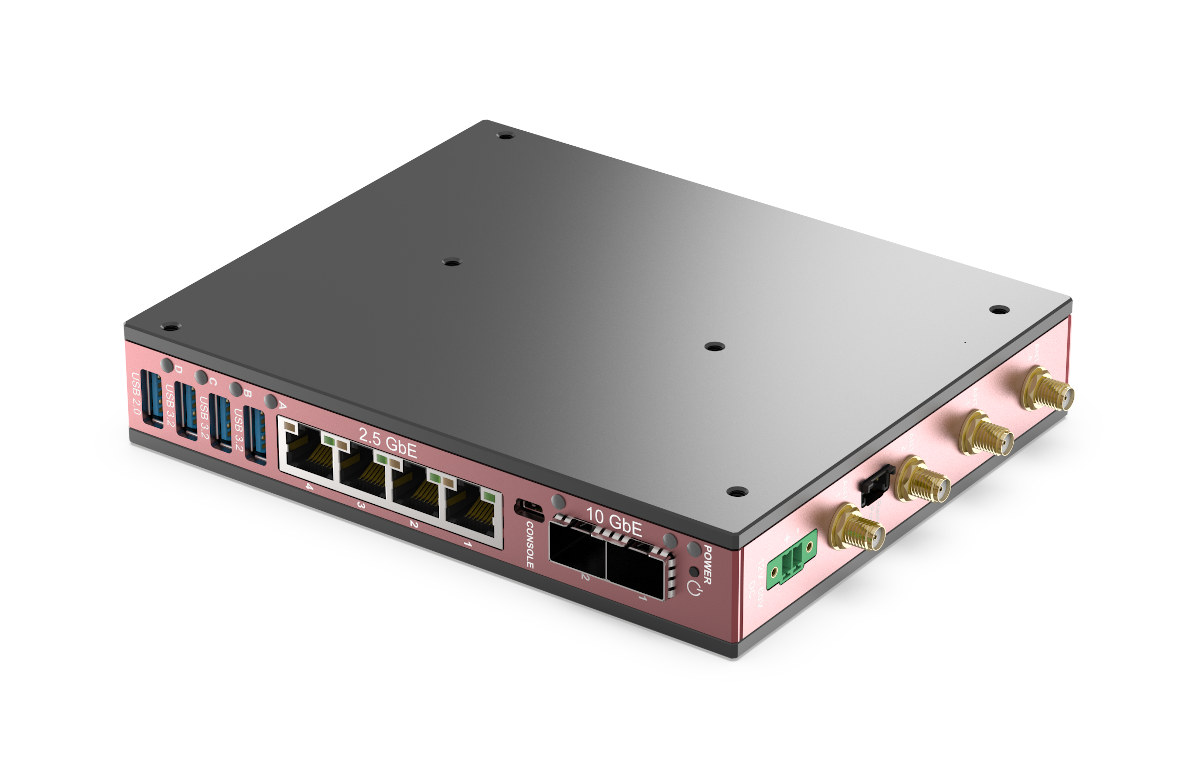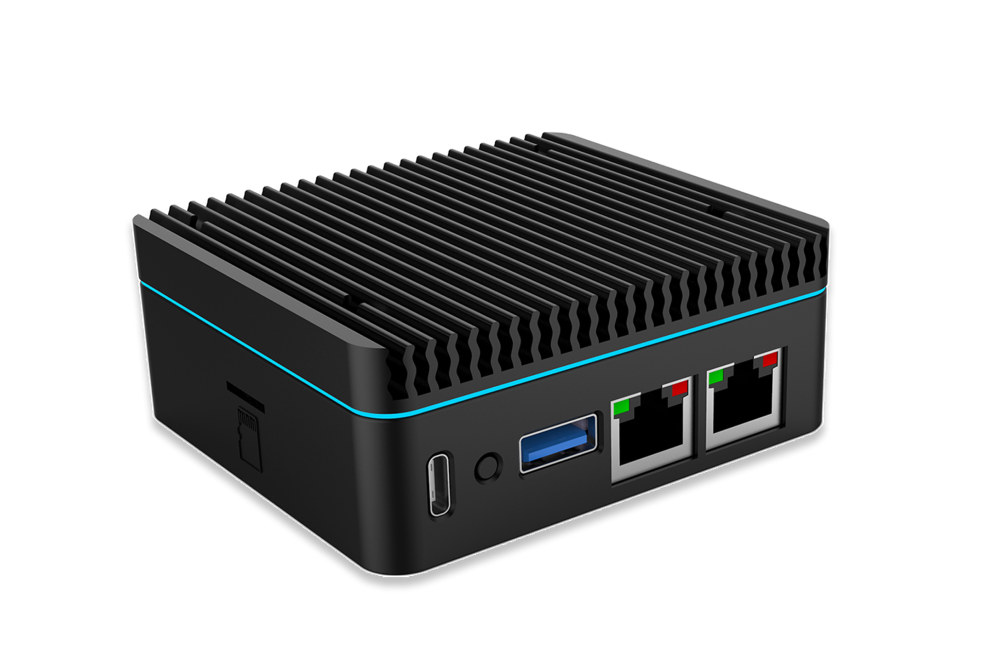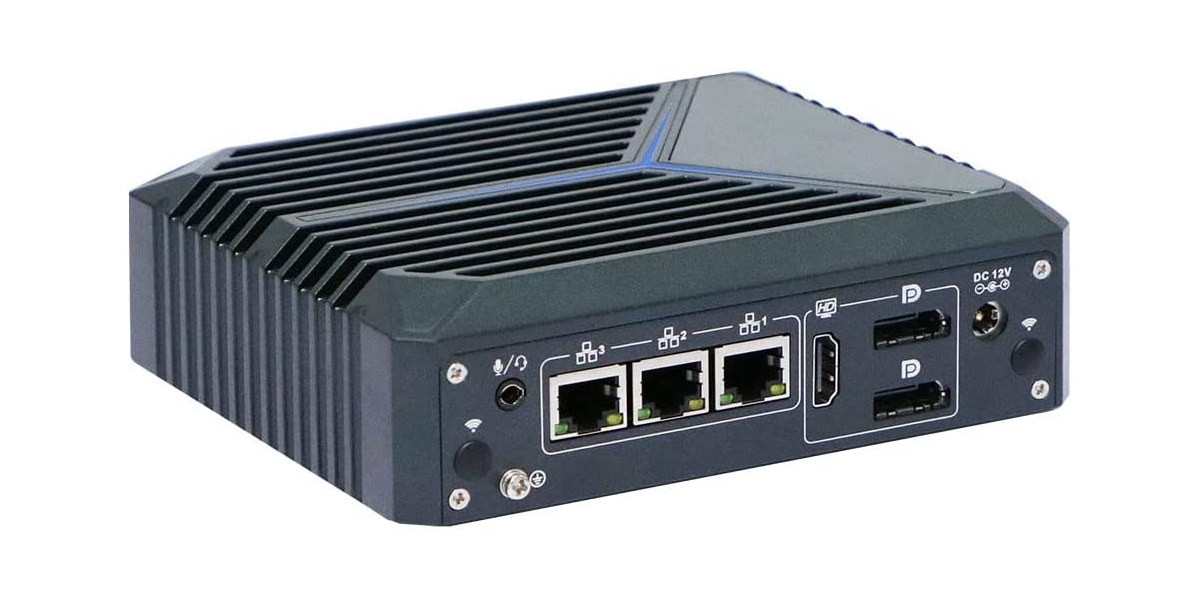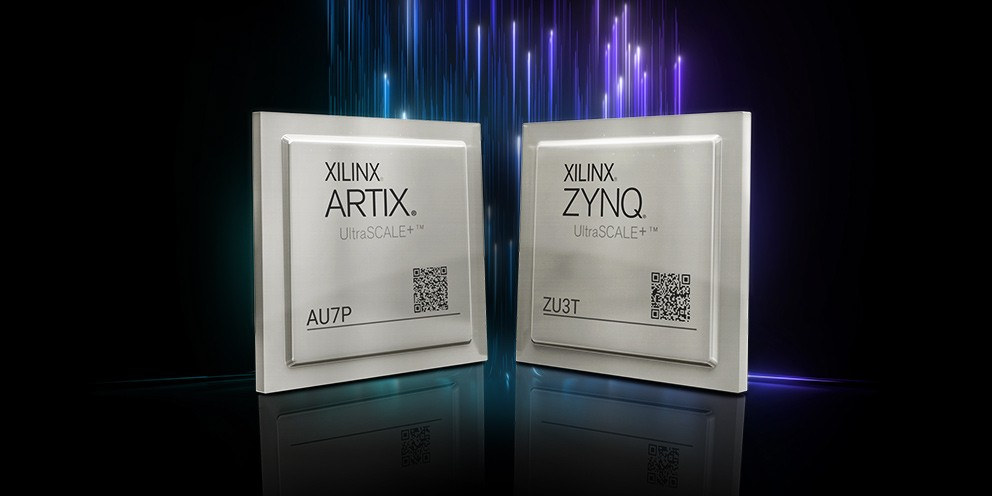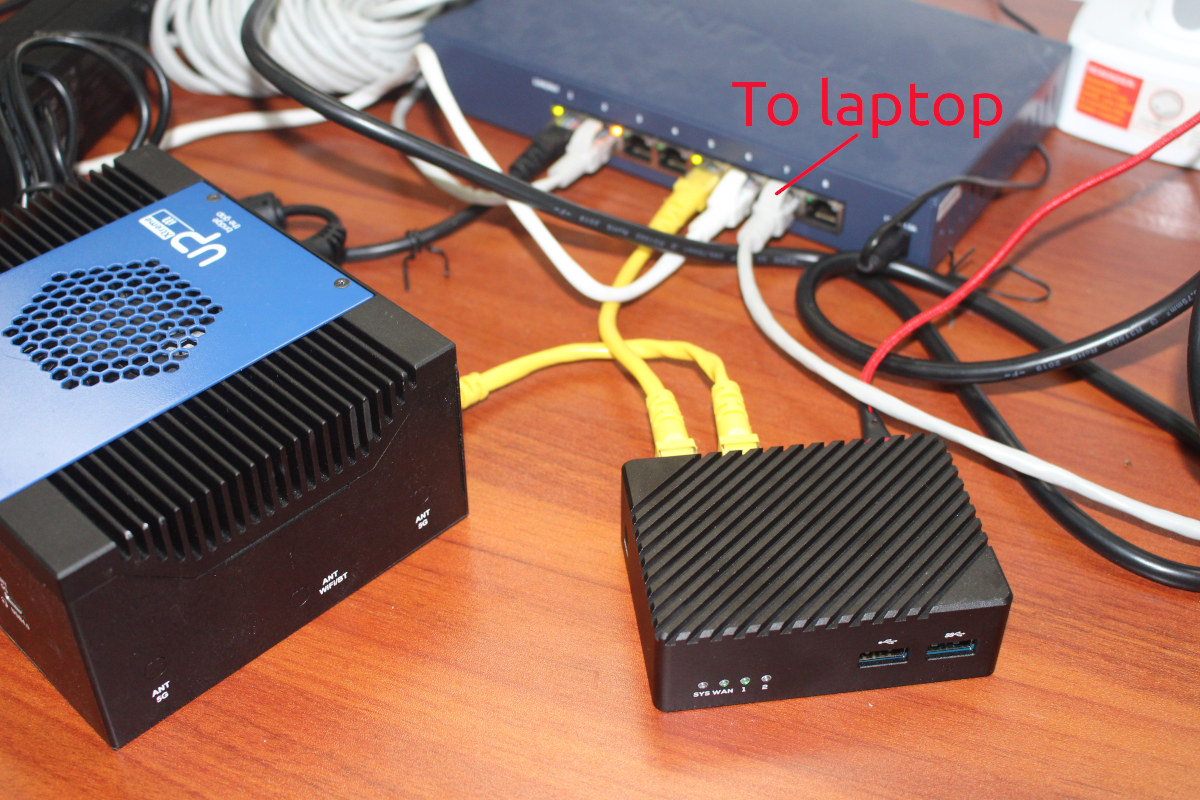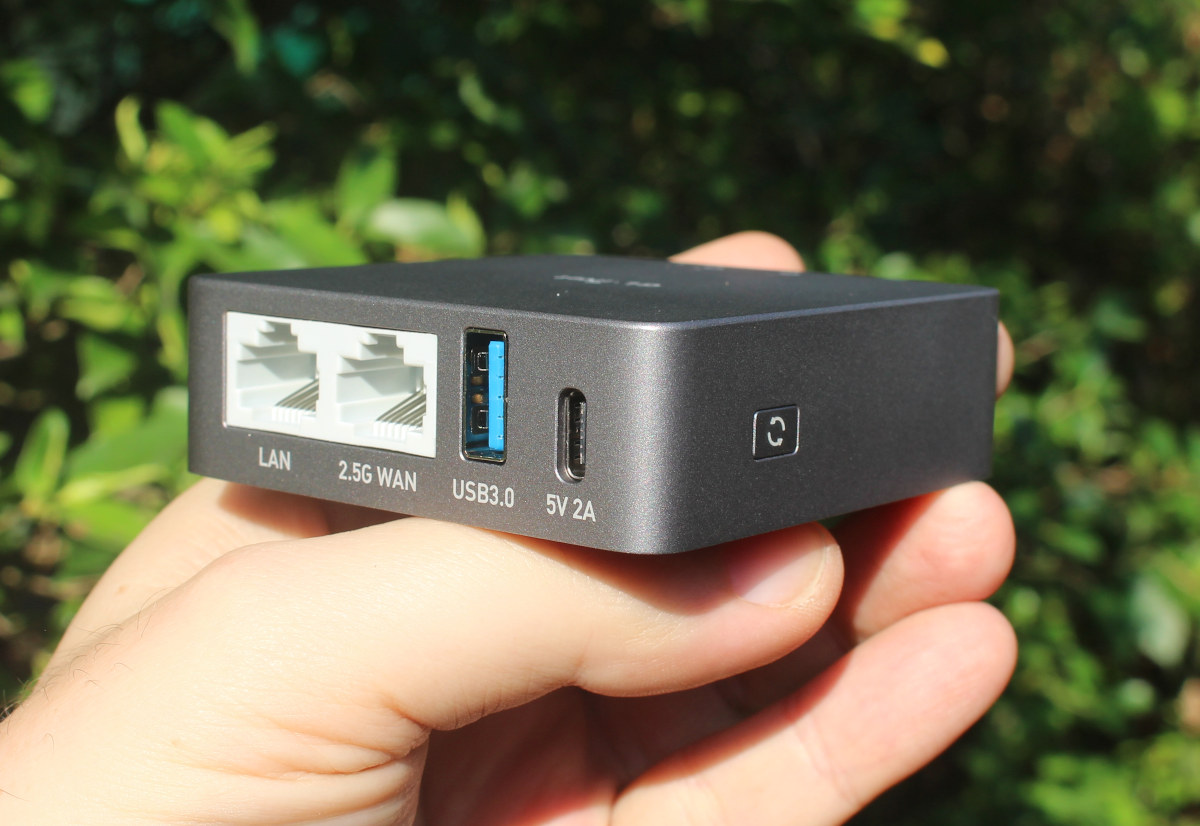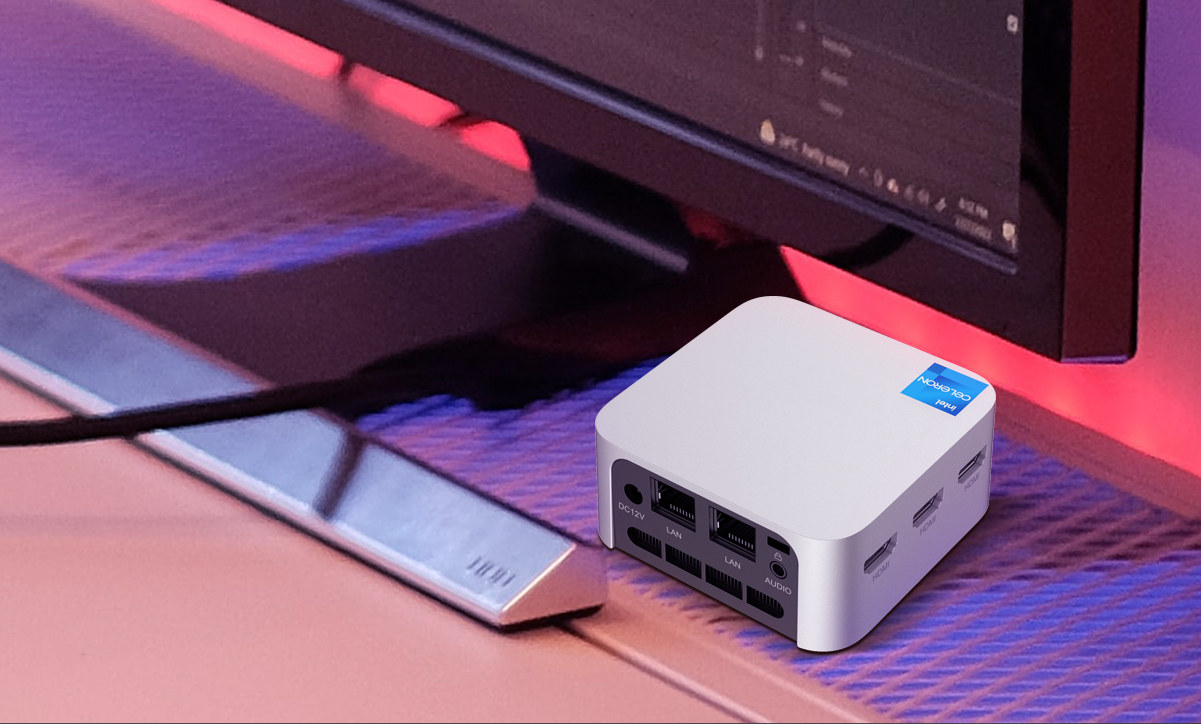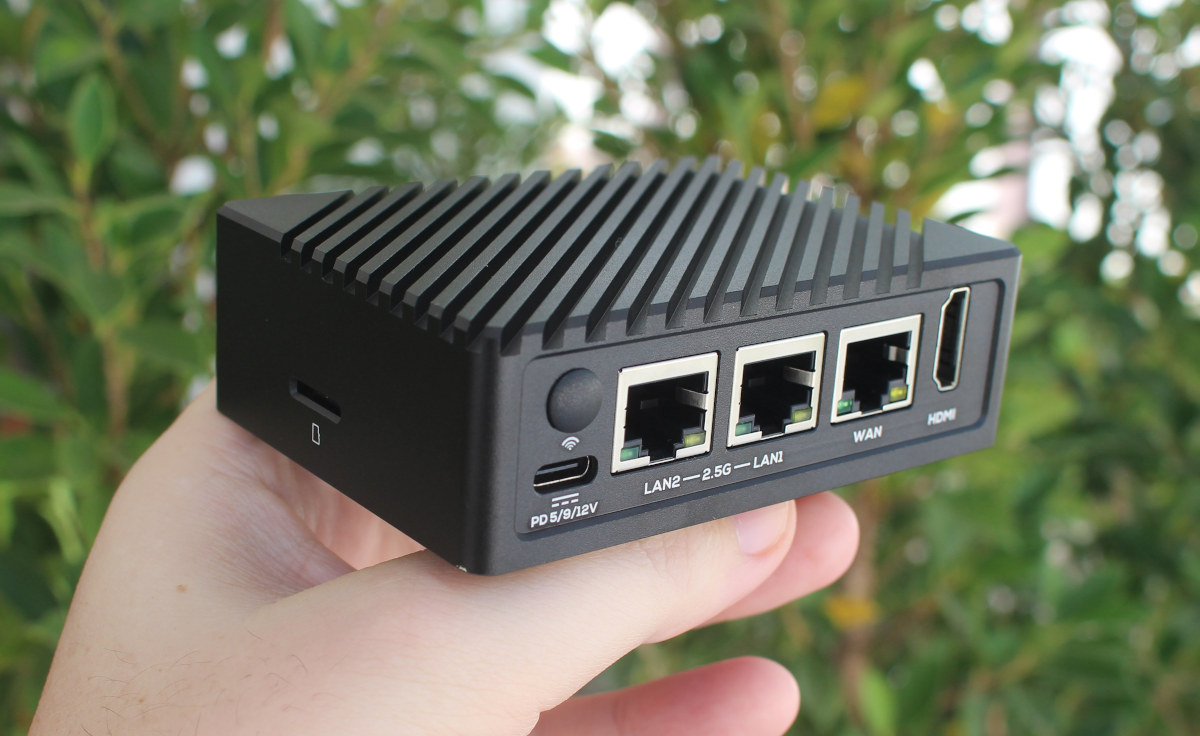SolidRun Bedrock V3000 Basic is an industrial fanless computer based on the new AMD Ryzen Embedded V3000 Zen3 processor family designed for storage and networking applications. More specifically, the embedded computer is based on the AMD Ryzen Embedded V3C48 octa-core/sixteen-thread processor with up to 64 GB DDR5 memory, support for up to three M.2 key-M 2280 NVMe SSDs, and impressive network connectivity options with two SFP+ cages capable of 10 Gbps speeds, four 2.5GbE RJ45 ports, and optional support for WiFi 6, 4G and/o 5G cellular connectivity. Bedrock V3000 Basic specifications: SoC – AMD Ryzen Embedded V3000 family with up to 8C/16T Zen3+ cores @ up to 3.8 GHz; TDP: Up to 45W System Memory – Quad-channel DDR5-4800 up to 64 GB ECC / non-ECC via 2x SODIMM socket. The RAM is conduction-cooled Storage 1x M.2 key-M 2280 NVMe PCIe Gen4 x 4 socket, conduction-cooled, with optional power-loss protection 2x […]
Radxa E25 modular 2.5GbE router supports WiFi 6 and 4G/5G cellular connectivity
Radxa E25 is a modular router with two 2.5GbE ports based on the Radxa CM3 Industrial (CM3I) system-on-module equipped with a Rockchip RK3568 quad-core Cortex-A55 processor, and optional support for WiFi 6 and 4G or 5G cellular connectivity. I got an early sample of the Radxa E25 carrier board in January, but the company has now refined the design with version 1.4 of the board and will launch the Radxa E25 as a complete router with an enclosure similar to NanoPi R5S and LinkStar H68K we’ve covered previously. Radxa E25 specifications: SoM – Radxa CM3I with Rockchip RK3568 quad-core Cortex-A55 processor @ 2.0 GHz with Arm Mali-G52, up to 8GB RAM, up to 128GB eMMC flash (250MB/s max), optional WiFi and Bluetooth Storage – MicroSD card socket, M.2 SATA 2242 SSD (multiplexed with 4G) Networking 2x 2.5GbE ports via Realtek RTL8125B 2.5 Gbps Ethernet transceiver (Tested by Radxa at 2.2 […]
Partaker J6412 is a fanless network appliance/mini PC with 3x 2.5GbE, 3x video outputs
We wrote about the low-cost T8-Pro Celeron N5095 mini PC with three HDMI outputs and two Gigabit Ethernet ports last week, but if you’d prefer a model with 2.5GbE networking instead, the Partaker J6412 might be a better, albeit costlier option, with still three displays support (2xDP, 1xHDMI), and three 2.5GbE ports. As its name implies, the fanless mini PC/network appliance is powered by an Intel Celeron J6412 Elkhart Lake processor, coupled with up to 16GB DDR4 memory and a 512GB SSD, and it features six USB ports, plus an RS232 COM port. Partaker J6412 specifications: SoC – Intel Celeron J6412 quad-core Elkhart Lake processor @ 2.0 GHz / 2.6GHz (Burst frequency) with 1.5MB cache, 16 EU Intel UHD Graphics; 10W TDP System Memory – 4GB, 8GB, or 16GB DDR4-3200 via 1x SO-DIMM socket upgradeable up to 32GB Storage M.2 M-Key 2280 SATA socket 1x SATA III (6 Gb/s) port […]
AMD unveils low-cost Artix UltraScale+ AU7P FPGA and Zynq UltraScale+ ZU3T MPSoC
AMD has added two new low-cost, low-power members to its UltraScale+ family with the Artix UltraScale+ AU7P FPGA and the Zynq UltraScale+ ZU3T MPSoC. Both devices are manufactured with the 16nm FinFET process and offer entry points to the transceiver-based UltraScale+ family with features such as high I/O-to-logic density, UltraRAM, DSP, and more. AMD Artix UltraScale+ AU7P FPGA The new AU7P FPGA is the smallest from the Artix UltraScale+ family with four 12.5Gbps transceivers, up to 82K system logic cells, 216 DSP slices, 4.9 Mbit RAM, and 248 I/Os. It is offered in a 10.5 x 8.5mm InFO package. The company says the chip provides up to 50% lower static power, 20% more I/O-to-logic ratio, and twice as many 3.3V HDIO compared to the AU10P device. The AU7P is designed for space-constrained and/or power-sensitive applications such as medical imaging, machine vision, professional cameras/monitors, and automotive radar/lidar. More details may be […]
NanoPi R6S Review – Part 1: Unboxing, Teardown, OpenWrt 22.03, and iperf3
NanoPi R6S is a Rockchip RK3588S powered device that can not only work as a router with two 2.5GbE ports, but also as a mini PC with HDMI and USB ports, and an Edge AI computer thanks to the 6 TOPS NPU found in the processor. FriendlyElec has just sent me two samples of the NanoPi R6S for review. Today, I’ll start with an unboxing, a teardown, and install OpenWrt 22.03 to run some iperf3 benchmarks. I’ll try other features with either Debian or Ubuntu Desktop in a few weeks. NanoPi R6S unboxing The router/mini PC ships with 6 rubber feet (3M), and nothing else. The front panel comes with four LEDs for the system and Ethernet ports, a USB 2.0 port and a USB 3.0 port, as well as an IR receiver “window” (under the USB 3.0 port). The rear panel includes a USB Type-C port that supports 5V […]
GL.iNet GL-MT2500A security gateway review – Part 1: Unboxing and teardown
The Brume 2 security gateway/router is powered by a MediaTek MT7981B (Filogic 820) dual-core processor @ 1.3 GHz and is available as the GL-MT2500A with a metal enclosure or the GL-MT2500 with a plastic case. GL.iNet sent me the GL-MT2500A for review. In the first of the review, we’ll have a look at the device and accessories, and tear it down to check out the hardware design and main components. I’ll then need some time to test OpenWrt 21.02 and features such as WireGuard and OpenVPN, AdGuard Home, Tor Anonymity, and soon. GL.iNet GL-MT2500A (Brume 2) unboxing The router ships with a short Ethernet cable, a 5V/2A USB Type-C power supply with EU, US, and UK plug adapters, and some minimal documentation that points to the users to more detailed online documentation and support on the company’s Facebook page. There’s not much too see on the front panel and right […]
T8-Pro Celeron N5095 mini PC offers triple HDMI output, dual Gigabit Ethernet
T8-Pro is a low-cost mini PC powered by an Intel Celeron N5095 Jasper Lake processor that offers features such as triple 4K HDMI output and dual Gigabit Ethernet usually found in more expensive models for the industrial/embedded market. The actively-cooled mini PC is equipped with 8GB RAM and an M.2 2242 SSD of 128GB to 1TB capacity. It also comes with a WiFi 5 and Bluetooth 4.2 module, three USB 3.0 ports, and a 3.5mm audio jack. T8-Pro mini PC specifications: SoC – Intel Celeron N5095 quad-core Jasper Lake processor @ 2.0GHz / 2.9GHz (Turbo) with 4MB cache, 16EU Intel UHD Graphics; 15W TDP System Memory – 8GB LPDDR4X (Up to 16GB, but not offered for sale) Storage – 128GB to 1TB M.2 2242 NVMe SSD Video Output – 3x HDMI 2.0 ports up to 4Kp60 Audio – 3.5mm audio jack (headphone & microphone) jack, digital audio via HDMI Connectivity […]
Giveaway Week – NanoPi R5S router
It’s that time of year… CNX Software giveaway week! For the 9th edition, we’ll have seven items to give away, five that I will send myself, and two that will be sent directly from two companies that accepted to add their own products to the giveaway. We’ll start the giveaway with NanoPi R5S router based on Rockchip RK3568 SoC with 2 GB DDR4 RAM, 8GB eMMC flash plus an M.2 socket for NVMe SSD, two 2.5GbE Ethernet ports, one Gigabit Ethernet port, as well as HDMI 2.0 video output and two USB 3.0 ports. I reviewed the NanoPi R5S router with OpenWrt and Ubuntu 20.04 “FriendlyCore”, but I had to call this a “preview” since 2.5GbE was far from optimal, sometimes only a little faster than with a Gigabit Ethernet link. But I can see the company has released new images, including one based on the latest OpenWrt 22.03, […]


